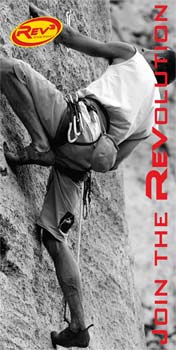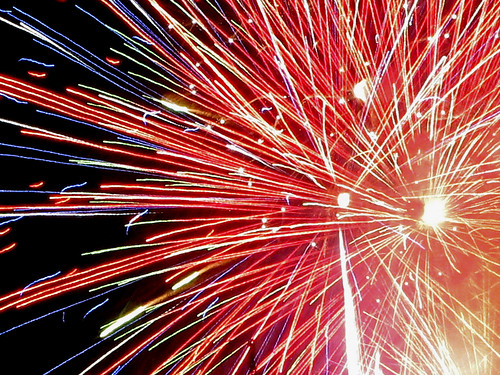Look around at the grocery store or the convenient mart sometime and you will see some new beverages starting to crop up with names like Amp, Battery, Sparks, Blue Charge, Pimp Juice, Liquid Blow, Crunk, Full Throttle, Red Bull, Monster, Bawls, Reload and Rockstar. These are what they call energy drinks. There is really only one problem. They don't really give you any energy. They give you the illusion of energy but, this "boost" — which may last as long as a few hours — typically results from the large amount of sugar and caffeine these drinks contain. (Sugar-free versions of many energy drinks still contain large amounts of caffeine.)
According to a recent article from Reuters News Agency, just one can of the popular stimulant energy drink Red Bull can increase the risk of heart attack or stroke.
The caffeine-loaded beverage, popular with university students and adrenaline sport fans to give them "wings", caused the blood to become sticky, a pre-cursor to cardiovascular problems such as stroke.
"One hour after they drank Red Bull, (their blood systems) were no longer normal. They were abnormal like we would expect in a patient with cardiovascular disease," Scott Willoughby, lead researcher from the Cardiovascular Research Center at the Royal Adelaide Hospital, told the Australian newspaper.
The advertising campaigns are really slick. Coca Cola makes a product called Full Throttle and encourages 20-30 year old men to "Let Your Man Out." In order to include women in the marketing mix, "Go Girl" is a sugar free drink that contributes a portion of their proceeds to Breast Cancer research. Over 500 new energy drinks hit the market in 2006. The 3.4 million dollar market for energy drinks is expected to double this year. If you don't know much about them or you just want to know more, watch this review from CBS News.
CBS Energy Drink Review
Some of these energy drinks can contain up to 300 mg. of caffeine, compared with 80 mg for a typical cup of coffee), which can lead to:
Increased anxiety and panic attacks
Increased blood pressure
Bowel irritability
Insomnia
Increased gastric acid
Meanwhile, ingesting 500 mg or more of caffeine (the amount easily ingested in four to eight servings of typical energy drinks) can lead to caffeine intoxication that can cause:
Vomiting
Fatigue
Sweating
Palpitations
Chest pains
Neurological symptoms
Diarrhea
Insomnia
CNN News: School Bans Energy Drink After 18 Students Get Sick

Sparks is a unique beverage in that it combines 87 mg of caffeine and 6-7% alcohol. "Rock Star 21" (not to be confused with regular Rock Star energy drink) also contains 6% alcohol while "Tilt" has 8% and "Joose" has a whopping 9.9%! Before these came out, Red Bull and vodka were very popular with college age students. It might seem good at first glance but you are really mixing an upper and a downer... thats why some people get bad hangovers from this. Sparks has often been consumed on campus in front of faculty who have no idea that it contains alcohol. Just think! If it contained a little nicotine, it would be the perfect "energy drink." It would be like drinking a beer, a cup of coffee and having a cigarette all at the same time! What a concept! If you have an addiction to all of these, it could save you a lot of time.
Seriously, you should never combine alcohol with caffeine. The combination of large amounts of caffeine and alcohol is especially dangerous, since alcohol by itself is known to trigger fast heart rhythms. To avoid this serious health risk — even if you don't have heart disease — you shouldn't combine alcohol with energy drinks. Caffeine is a stimulant and alcohol is a depressant. The resulting mix can lead to cardiopulmiary and cardiovascular failure.
Meanwhile, researchers from North Carolina's Wake Forest University revealed that mixing alcohol and energy drinks increases students' risk of harm.
After surveying over 4,000 U.S. students, they found that those who drank alcoholic energy drink cocktails were more likely to:
Suffer injuries
Require medical help
Travel with a drunk driver
Get into trouble over sex
These harmful effects occurred because the energy drinks masked much of the alcohol's intoxicating effects, which allowed students to drink for longer periods.
"Students whose motor skills, visual reaction times, and judgment impaired by alcohol may not perceive that they are intoxicated as readily when they're also ingesting a stimulant," said lead researcher Dr Mary Claire O'Brien. "Only the symptoms of drunkenness are reduced -- but not the drunkenness. They can't tell if they're drunk, they can't tell if someone else is drunk. So they get hurt, or they hurt someone else."
Here are some of the common ingredients in some of these drinks and what affect they can have on your health.
Yellow #5 and 6 - has a tendency to change the color of the tongue and teeth temporarily, after consumption of several of these beverages due to FD&C Yellow No.5.
Sugar - Although the various sugars used to sweeten energy drinks can briefly increase energy, consuming large quantities of sugar is likely to cause weight gain. Sugar can also be addicting and too much sugar in your diet can lead to heart disease and diabetes.
Sucralose - (Also known as Splenda) There have been no independent human tests regarding the long-term safety of this product. That's reason enough to be wary. But there was a study of its effect on rats that was published in the FDA's Federal Register. It showed that rats that were given sucralose experienced shrunken thalamus glands, enlarged livers and kidneys, reduced growth rate, reduced red blood cell count, aborted pregnancies, and diarrhea. Many people dislike it because of the unpleasant aftertaste.
If you ingest Splenda in any amount, I urge you to read firsthand accounts of its harmful effects. There are more than 30 posted on Dr. Mercola's website

Aspartame -Nutrasweet, Equal, Spoonful and Equal-Measure are all synonymous with aspartame. Aspartame is a known neuroexitotoxin. Some people react to aspartame immediately, while others can take 10 to 20 years for the aspartame reaction to become noticeable. Problems attributed to aspartame include:
* anxiety and panic attacks
* problems concentrating and focusing
* loss of memory
* depression or irritability
* dizziness
* headache or migraine pain
Sodium Benzoate (to protect taste) - The reason it protects taste is because it is a preservative that prevents bacteria growth, yeast and fungi. One of the big concerns has been the apparent dangers of it being combined with vitamin C (ascorbic acid). When this happens, it forms a chemical called Benzene which is carcinogenic (causes cancer). Benzene has shown the ability to affect mitochondria and produce cell death.
Caffeine - is a stimulant, which also can temporarily perk you up. When taken in moderation, the caffeine in coffee has shown the ability to increase athletic performance. A study conducted in 1979
 showed a 7% increase in distance cycled over a period of two hours in subjects who consumed caffeine compared to control tests. Other studies
showed a 7% increase in distance cycled over a period of two hours in subjects who consumed caffeine compared to control tests. Other studies attained much more dramatic results; one particular study of trained runners showed a 44% increase in "race-pace" endurance, as well as a 51% increase in cycling endurance, after a dosage of 9 milligrams of caffeine per kilogram of body weight. The extensive boost shown in the runners is not an isolated case; additional studies have reported similar effects. Another study
attained much more dramatic results; one particular study of trained runners showed a 44% increase in "race-pace" endurance, as well as a 51% increase in cycling endurance, after a dosage of 9 milligrams of caffeine per kilogram of body weight. The extensive boost shown in the runners is not an isolated case; additional studies have reported similar effects. Another study  found 5.5 milligrams of caffeine per kilogram of body mass resulted in subjects cycling 29% longer during high intensity circuits. But too much caffeine can cause adverse side effects, such as nervousness, irritability, increased blood pressure and insomnia. Caffeine abuse can also make your heart beat faster and trigger abnormal heart rhythms, which is especially dangerous if you have any type of heart disease. While some energy drinks have as much as 300 mg. of caffeine, I would look for one that uses a natural source of caffeine like green tea. Look for a drink that has a lower 80 mg. of caffeine. That is about the same amount as found in a normal cup of coffee.
found 5.5 milligrams of caffeine per kilogram of body mass resulted in subjects cycling 29% longer during high intensity circuits. But too much caffeine can cause adverse side effects, such as nervousness, irritability, increased blood pressure and insomnia. Caffeine abuse can also make your heart beat faster and trigger abnormal heart rhythms, which is especially dangerous if you have any type of heart disease. While some energy drinks have as much as 300 mg. of caffeine, I would look for one that uses a natural source of caffeine like green tea. Look for a drink that has a lower 80 mg. of caffeine. That is about the same amount as found in a normal cup of coffee.Guarana Extract- the guarana fruit is about the same size as the coffee berry but with three times as much caffeine. Again, be careful of the caffeine content. A little can be beneficial but a lot can be harmful.
Phenylalanine - may be used to reduce chronic pain by stimulating pathways in the brain to control pain. It is also given to people for the treatment of depression as it promotes the production of dopamine and norepinephrine in the brain. If you are taking antidepressant medicines already, phenylalanine may cause an increase in blood pressure leading to a stroke or heart attack.
Taurine - Despite its presence in many energy drinks, taurine has not been shown to be energy-giving. Taurine does alleviate muscle fatigue in strenuous workouts and raises exercise capacity. Taurine has also been shown in diabetic rats to decrease weight and decrease blood sugar.
In some of the more health conscious energy drinks, you might find the following ingredients:
Rhodiola rosea (Golden Root, Roseroot) is a plant that grows in cold regions of the world. It may be effective for improving mood and alleviating depression. Pilot studies on human subjects showed that it improves physical and mental performance as well as reducing fatigue.
L-Carnitine - boosts energy by stimulating the body's burning of tryglycerides (a type of fat found in the blood) as fuel, and sparing the supply of glycogen stored in the liver for heavier exertion. During exercise, the body will burn fat at a rate of 75-80% of maximum exertion, thus less glycogen from carbohydrates is burned. L-carnitine allows the body to burn more fat, save more glycogen, and ultimately boost stamina and endurance. By providing more fat to the muscles, carnitine makes accessible an otherwise unavailable energy source.
Calcium and Magnesium - Calcium is needed for muscle contraction and magnesium for muscle relaxation. They also play an integral role in the body's energy generation and enzyme production at the cellular level.
D-Ribose - Enhances cardiac energy levels and support cardiovascular metabolism. Ribose has been shown in clinical trials to enhance the recovery of heart muscle ATP levels and improve myocardial function following exercise. Studies suggest that ribose supplementation can increase the tolerability of the cardiovascular system to exercise-induced fatigue.
Cacao Extract - Known to decrease blood pressure and improve insulin sensitivity in healthy persons. Am J Clin Nutr. 2005 Mar;81(3):611-4.
Choline Chloride - Is a member of the B-complex group of water-soluble vitamins (vitamin B-4). Those who do strenuous exercise may drastically reduce their levels of choline. The probable reason for this is the need for choline to metabolize fat. This need increases during exercise. It also works in movement control. Choline chloride is found in concentrations in the tissues of the nervous system.
Coenzyme Q10 - is a fat-soluble antioxidant that is found in virtually all cell membranes. CoQ10's key role is in producing adenosine triphosphate (ATP), needed for energy production in every cell of the body. Secondary to that, CoQ10 functions as a powerful antioxidant.
Biotin - Helps us use carbohydrate, fat, and protein to produce the energy that allows us to stay alive.
An Energy Drink Alternative
Why not energize with something that is good for you? Developed by USANA’S nutrition experts, Rev3 Energy is a superior alternative to crash-and-burn energy drinks.

Rev3 Energy™
- Cleaner - crisp, all-natural taste
- Smarter - contains smart sources of caffeine and low-glycemic sugars while providing important vitamins, antioxidants, and minerals
- Stronger - Complete and proprietary energy complex with the energy-producing ingredient L-Carnitine. Formulated to help improve the body’s response to stress and fatigue.*
- Cleaner - crisp, all-natural taste
- Smarter - contains natural caffeine from a blend of teas to improve mental alertness and stamina. Teas also provide important antioxidants and phytonutrients known to be beneficial to health and metabolism
- Stronger - formulated with green tea, Korean ginseng, and rhodiola rosea to improve the body’s response to stress and fatigue.*
Click here to see what the actual ingredients are and make your own comparison.
If you are looking for some other natural ways to increase your energy, here are three things that will provide you with the all-day the energy you need:
- Get plenty of uninterrupted sleep.
- Eat low glycemic meals that will not spike your blood sugar.
- Exercise at least 20-30 minutes per day (if not longer)













 My StumbleUpon Page
My StumbleUpon Page





